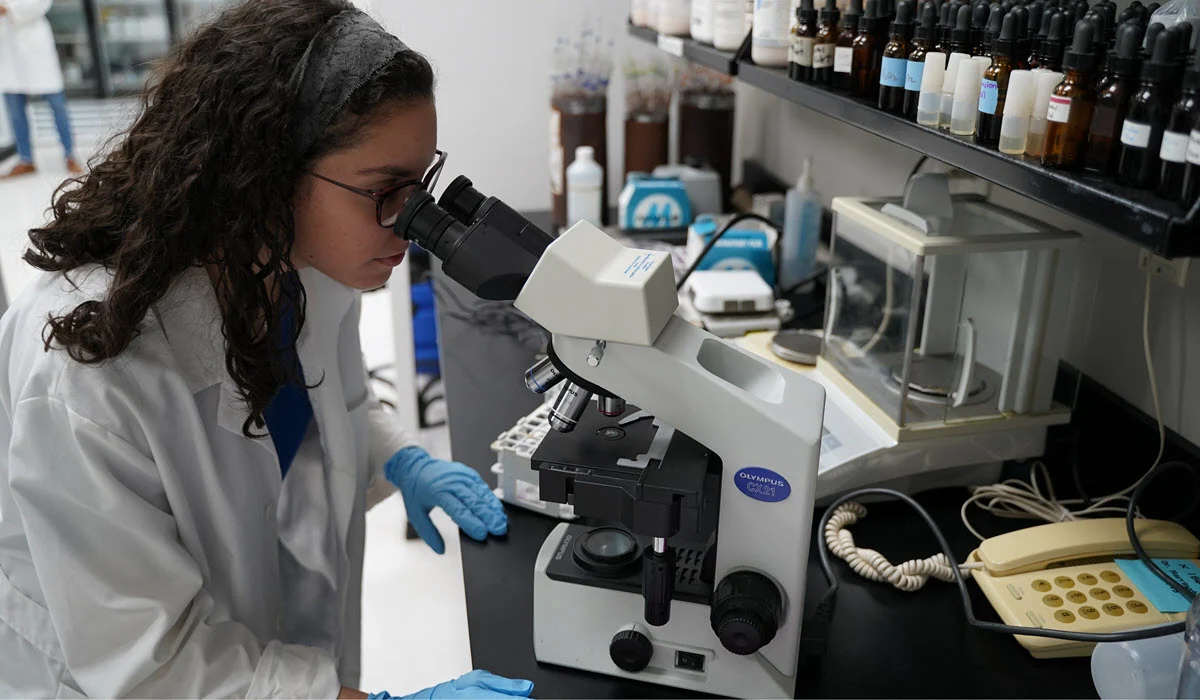
Pathologists are the unsung heroes of the medical field. They play a crucial role in diagnosing diseases and determining the cause of death. While they may not always be in the spotlight, these dedicated professionals are responsible for unraveling the mysteries of the human body. In this article, we will delve into the fascinating world of pathologists and uncover 13 astonishing facts about their work. From performing autopsies to studying the microscopic details of tissues, these experts leave no stone unturned in their quest for accurate diagnosis. So, fasten your seatbelts and get ready to be amazed by the remarkable contributions of pathologists to the field of medicine.
Key Takeaways:
- Pathologists are like medical detectives, using their expertise to identify diseases and provide valuable insights for treatment decisions and patient outcomes.
- Pathologists play a crucial role in healthcare, from diagnosing cancer to advancing medical research, and ensuring patient safety through their dedication and expertise.
The Pathologist’s Role in Disease Detection
The primary responsibility of a pathologist is to examine samples and identify diseases. Through their expertise, they provide valuable insights to help guide treatment decisions and improve patient outcomes.
Pathologists and Forensic Medicine
Pathologists are crucial in forensic investigations, aiding in determining the cause and manner of death. Their analysis of postmortem examinations helps uncover clues and evidence in criminal cases.
Different Specializations in Pathology
Pathologists can specialize in various fields such as Anatomic Pathology, Clinical Pathology, Hematopathology, and Molecular Pathology. Each specialization focuses on a specific aspect of disease detection and treatment.
The Pathologist’s Extensive Training
Becoming a pathologist requires years of intensive study. After completing medical school, aspiring pathologists must undergo a residency program, followed by fellowship training in their chosen subspecialties.
The Pathologist as a Consultant
Pathologists often collaborate with other medical professionals as consultants, providing expert advice on complex cases and contributing to multidisciplinary discussions for accurate diagnosis and treatment planning.
Pathology’s Role in Cancer Diagnosis
Pathologists are vital in diagnosing cancer through the examination of tissue biopsies. Their expertise in identifying cancer cells helps guide treatment decisions and monitor the effectiveness of therapies.
Pathologists and Precision Medicine
Pathologists contribute to the emerging field of precision medicine by studying a patient’s genetic makeup and identifying specific markers that guide personalized treatment plans.
Pathologists Behind the Scenes
While pathologists may not always interact directly with patients, their work behind the scenes is instrumental in providing accurate diagnoses, ensuring appropriate treatment, and improving overall patient care.
Pathology’s Role in Medical Research
Pathologists play a crucial role in medical research, analyzing and interpreting data to uncover new insights into diseases. Their contributions help advance medical knowledge and drive innovation in healthcare.
Pathologists and Infectious Diseases
In times of public health crises, such as pandemics, pathologists are at the forefront, identifying infectious diseases, developing diagnostic tests, and studying the impact of pathogens on human health.
The Pathologist’s Technological Advancements
With advancements in technology, pathologists now utilize digital imaging systems, artificial intelligence, and molecular techniques to enhance accuracy, efficiency, and the speed of diagnoses.
Pathologists as Educators
Many pathologists serve as educators, sharing their knowledge and expertise with medical students, residents, and fellows. They contribute to the training of future generations of healthcare professionals.
Pathology and Patient Safety
Pathologists play a significant role in ensuring patient safety by identifying and preventing potential errors in diagnoses, promoting quality assurance, and advocating for best practices in pathology laboratories.
Conclusion
In conclusion, pathologists play a crucial role in the field of medicine. They are responsible for diagnosing and identifying diseases through the examination of tissues and bodily fluids. Pathologists possess a wide range of knowledge and skills, allowing them to provide invaluable insights and contribute to patient care.
From conducting autopsies to studying the effects of diseases on the human body, pathologists play an integral part in furthering medical research and understanding the complexities of various illnesses. Their expertise and attention to detail help ensure accurate diagnoses and guide treatment plans.
With their extensive training and expertise, pathologists continue to be a vital component of the healthcare system. Their work behind the scenes greatly impacts patient outcomes and contributes to the overall advancement of medical science.
FAQs
Q: What is the role of a pathologist?
A: Pathologists are medical professionals who specialize in diagnosing diseases by examining tissues and bodily fluids. They play a pivotal role in identifying and understanding various illnesses, contributing to patient care and treatment plans.
Q: How do pathologists diagnose diseases?
A: Pathologists use various techniques, including microscopy, laboratory tests, and molecular analysis, to identify and diagnose diseases. They analyze samples such as tissues, cells, and bodily fluids to interpret the presence and characteristics of diseases.
Q: Do pathologists only work in hospitals?
A: While many pathologists work in hospitals, they can also be found in research institutions, academic settings, and private laboratories. Pathologists may collaborate with other healthcare professionals and contribute to medical research and education.
Q: Is pathology a specialized field of medicine?
A: Yes, pathology is considered a specialized field of medicine. Pathologists undergo extensive training and education to develop their expertise in diagnosing diseases and understanding the underlying mechanisms.
Pathologists play a crucial role in healthcare, but their work often remains behind the scenes. If you're curious to learn more about the fascinating world of pathology, consider exploring related professions and specialties. Delving into the unique responsibilities of pathologist assistants can provide insight into the teamwork that drives medical diagnoses. Plant pathologists, on the other hand, focus on the health of our botanical friends, uncovering the mysteries of diseases that affect crops and ecosystems. Speech-language pathologists, meanwhile, dedicate their careers to helping people communicate effectively, overcoming challenges ranging from developmental delays to neurological conditions. Each of these pathology-related fields offers its own set of intriguing facts and stories waiting to be discovered.
Was this page helpful?
Our commitment to delivering trustworthy and engaging content is at the heart of what we do. Each fact on our site is contributed by real users like you, bringing a wealth of diverse insights and information. To ensure the highest standards of accuracy and reliability, our dedicated editors meticulously review each submission. This process guarantees that the facts we share are not only fascinating but also credible. Trust in our commitment to quality and authenticity as you explore and learn with us.


